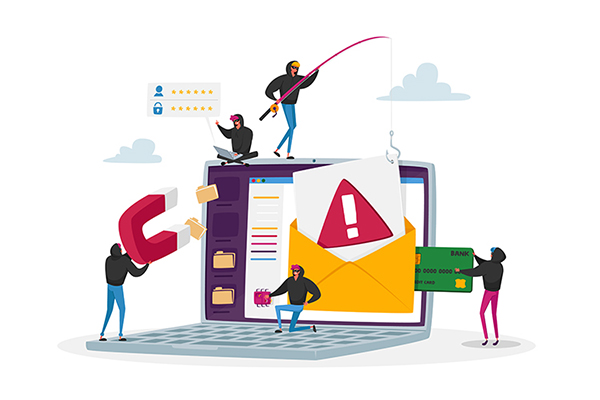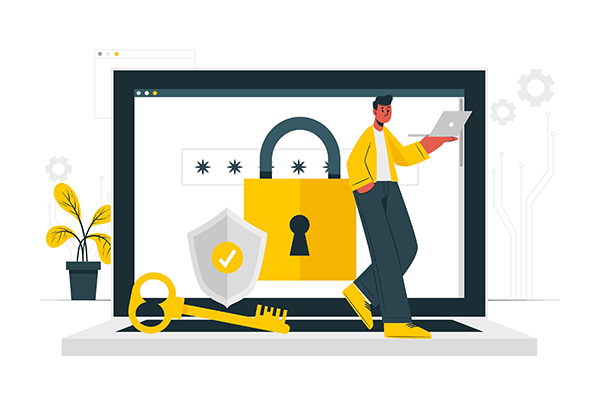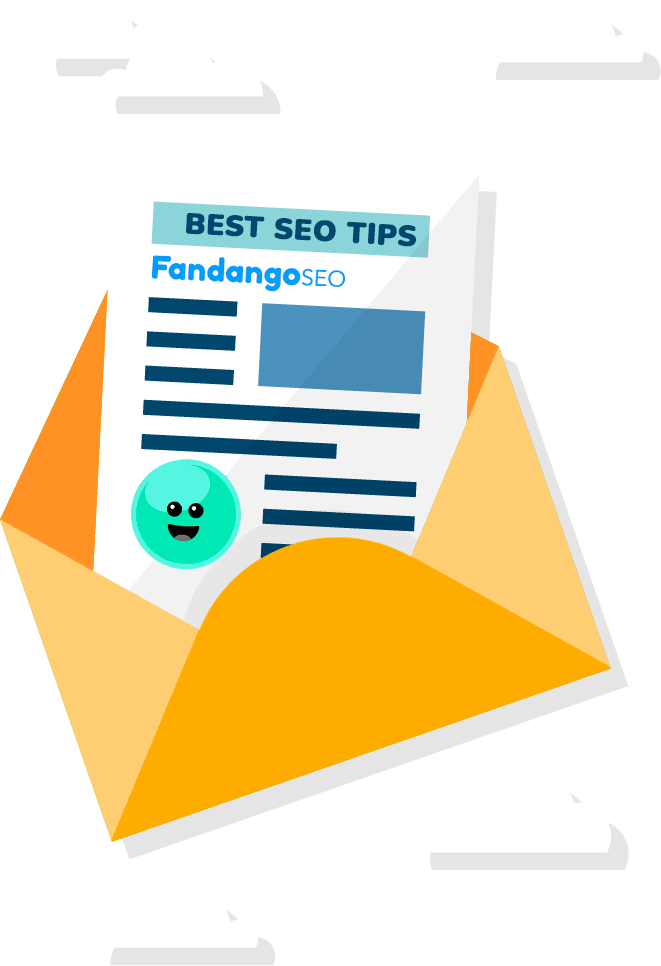Website security can also be referred to as cybersecurity. It means protecting your website by detecting, preventing, and responding to cyber threats on a daily basis.
How does your web security affect your SEO?
Several factors come into play that influences SEO. When optimizing your website for SEO, it is easy to overlook one of them. In recent times, internet usage has evolved as people use it in different ways. As a digital marketer, you will need to pay close attention to protecting your webpage. Having online security or lacking it can impact your SEO rankings directly.

There are specific ways in which lacking site security can compromise your SEO optimization;
Trust
Imagine you are visiting a webpage, and the Google flagging of ‘Not secure’ appears on the URL. You will probably not want to continue visiting the site. This is where trust issues come in. unless you earn their trust, clients will no longer visit you. They will take their businesses to another site. This will leave you suffering very high bounce rates.
SEO Spam
Hackers access websites through the use of vulnerability. They hijack SEO attainments and place their own spam keywords and hyperlinks in your pages that rank the highest. Hackers give you time to do all the heavy work to bring websites ahead of other competitors that you are competing with. The moment you attain a position in the search engine, it’s the moment they strike and use it as an opportunity to market their products.
SEO spam has been branded as SEO poisoning, and the most popular victims of this poisoning are business websites, WP blogs, and NGOs. Always be on the lookout. It would be best if you had security arrangements that will take care of such crimes.
Blacklisting
If you think your site can be a target for attacks, the financial damage is not the direct concern. The main problem is that your site may affect SERPs and be subjected to Google’s manual penalties. However, not all sites that contain malware are blacklisted in search engines. Your website’s rankings will suffer from not showing up on Google.
Adding malware to a site will result in a negative outcome. When malware is found on your webpage, and there is no flagging, it will result in high chances of hacking and strict penalties. To ensure the safety of your website, it is advisable to practice prevention.
Crawling errors
Bots are always part of the website and application traffic at some point. However, approximately 19% of bots will crawl sites for detection, data theft, vulnerability, and domain mining. Although their attempts might be ineffective, persistent software breaches will hinder Google bots from working effectively.
How to improve web security
Here are some good practices to protect your website and avoid compromising your SEO performance.
Installation of security plugins
For many sites, malware bots affect sites 150 million times weekly. With malware problems in place, it will lead to hackers stealing your information, and eventually, you will not be able to access your site. By using WordPress Plugins, your website will have protection from malware attacks.
Ensure your site is always updated
Content management systems have many advantages to sites besides risks. Hackers can easily access the codes in these tools since they are created by the use of open-source software programs. Therefore, this is the reason why you have to constantly update your plugins.
Always use passwords that are unique and strong
Most commonly used passwords can be found easily online, whether it uses letters, numbers, or both. Don’t risk using common passwords while operating your site. Ensure you generate strong passwords. It should be a combination of special characters, letters, and numbers. The longer your password, the stronger it is. Also, remember to be confidential when it comes to keeping your unique website ID.
Make use of valid SSL certificates
Some URLs start with ‘https://’ and others begin with ‘http://’. They have a difference. It shows that your link to the site is secure and encrypted. The ‘s’ is known as SSL.
What does an SSL certificate mean?
A Secure Socket Layer (SSL) certificate is a promise of trust that secures links between web pages and client-servers by assuring end-to-end encryption. Once you have installed an SSL certificate to your site’s HTTP, you will have unlocked an advanced HTTPS, which serves as better protection from digital crime.
With its end-to-end encryption, even the best cyber-criminals don’t stand a chance of breaching its walls. Having an SSL certificate has become a major factor when it comes to fighting cybercrime.

